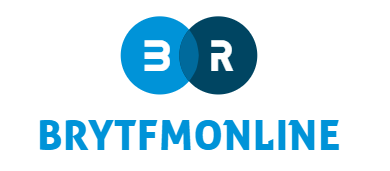US stocks closed with a mixed trend. While the Dow Jones and the S&P 500 fell, the Nasdaq rose. Technology bills gave gas and banking problems weighed on morale.
Major indices on the other side of the Atlantic posted a mixed trend, with only the Nasdaq Technology Index managing to hold its breath.
The Dow Jones Industrial Average fell 0.68% to 33,301.87 points, while the Standard & Poor’s 500 fell 0.38% to 4,055.99 points.
The Nasdaq Technology Composite closed adding 0.47% to 11,854.35 points, mainly supported by quarterly accounts filed yesterday after Microsoft closed – which beat expectations. Today, investors await the results report of Meta, owner of Facebook.
All indices were trading higher, but the Dow reversed into the red, largely due to the negative weight of its Transportation sub-index — which fell more than 3%, hit mainly by a downward revision, by UPS, of revenue for that matter. year, which exacerbated market players’ fears of a slowdown in the US economy. The global shipping and logistics company announced its accounts yesterday, but today it continued to negatively affect trading.
The S&P 500 also entered negative territory, mainly penalized by banks, as investors feared the health of regional banks – which sent companies listed in the sector lower.
First Republic Bank’s troubles continue to weigh on today’s session. And they closed yesterday, declining by about 35%, with the flight of deposits (equivalent to 100 billion dollars) in the first quarter, which led to a decline, as it was much higher than expected.
The First Republic — which found itself in difficulties around the same time it saw Silicon Valley Bank and Signature Bank close its doors, last month — continued the day to underperform and shares fell 32%, trading suspended. in the stock exchange.
Adding to the First Republic’s setbacks was the fact that US authorities were considering downgrading the bank.
The debt ceiling and the Fed meeting
Reflecting growing investor anxiety, the cost of securing exposure to US sovereign debt rose to the highest level since 2011, driven by unease that the federal government may reach its debt ceiling sooner than expected. , the federal government is forced to close its agencies (the so-called “closure”).
The House of Representatives is still voting this Wednesday on a bill that aims to sharply cut public spending for a decade in exchange for a short-term increase in the debt limit (known as the “debt ceiling”) — but it’s still not sure it will get enough support among the majority. Republic in the House of Congress for approval.
Another stressor – and one that contributed to the high volatility that has returned to stock markets on the other side of the Atlantic – relates to fears of a recession in the United States, since the Federal Reserve, if it continues to tighten its monetary policy, in the context of rising inflation, It may not avoid a further slowdown in the economy.
The vast majority of analysts are pointing to a 25 basis point increase in the federal funds rate next week, at the May 2-3 meeting, but there are concerns that the central bank will continue to raise rates again at the June monetary policy meeting. And then there is the expectation that the Fed will begin an opposite cycle of lowering benchmark rates later this year.

“Wannabe internet buff. Future teen idol. Hardcore zombie guru. Gamer. Avid creator. Entrepreneur. Bacon ninja.”







More Stories
CUF with profits of 39.8 million to grow by 9.5% in 2023
From Markets to Economics – and Other Things You Need to Know – Executive Summary
A child left in a plastic bag and burned with a cigarette in the Lisbon area – Community